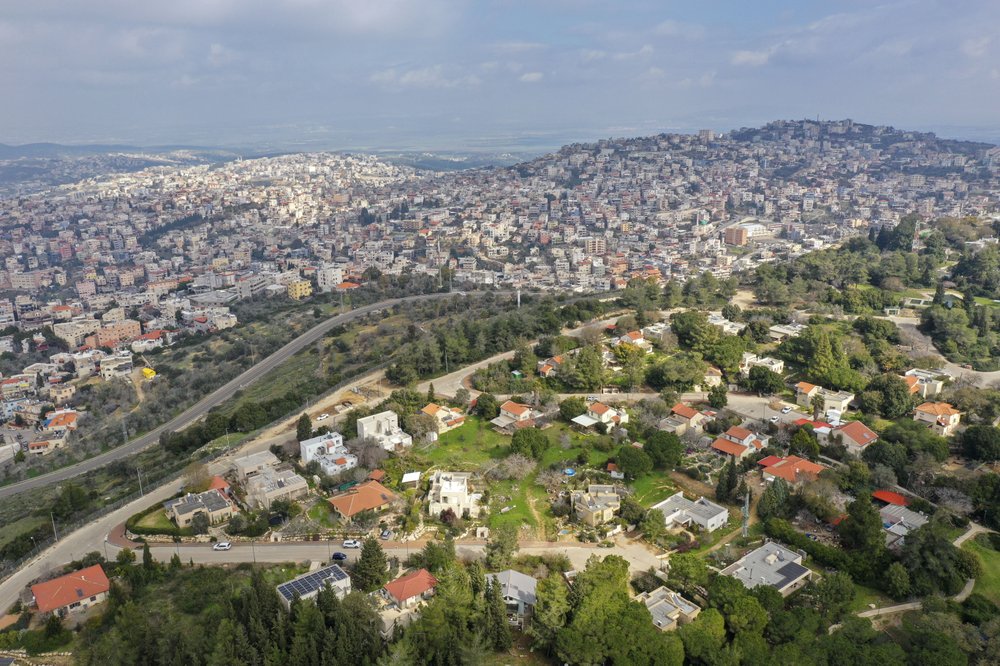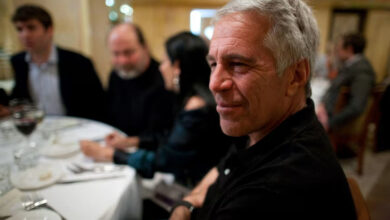
UNITED NATIONS (AP) — The U.N. Security Council on Monday reiterated its support for a two-state solution to the Israeli-Palestinian conflict, in its first statement following the unveiling of the U.S. plan for resolving the decades-old struggle three weeks ago.
President Donald Trump ’s plan sided with Israel on most of the conflict’s main sticking points, and the Palestinians rejected it outright.
The U.N. statement, which was approved by all 15 council members including the U.S., made no mention of Trump’s plan. It also didn’t directly address Palestinian demands for an independent state including all of the West Bank and east Jerusalem — areas captured by Israel in the 1967 Mideast war — and the removal of many of the more than 700,000 Israeli settlers from these areas.
But the U.N. statement did voice the council’s support for a “negotiated two-state solution, recalling previous relevant U.N. resolutions, and in accordance with international law, where two democratic states, Israel and Palestine, live side by side in peace within secure and recognized borders.” The statement was drafted by Belgium, which holds the council presidency this month.
Security Council resolutions have in the past called for a two-state solution based on 1967 lines, and the U.N. has repeatedly called Israeli settlements illegal.
A December 2016 resolution, frequently cited by the Palestinians that the U.S. abstained on, reaffirms that any Israeli settlement in “Palestinian territory occupied since 1967, including East Jerusalem, has no legal validity and constitutes a flagrant violation under international law and a major obstacle to the achievement of the two-State solution.” The council also “underlines that it will not recognize any changes to the June 4, 1967 lines, including with regard to Jerusalem, other than those agreed by the parties through negotiations.”
The council statement came amid two days of intense fighting between Israel and the Islamic Jihad militant group in the Gaza Strip. There were no reports of civilian casualties on either side, but an informal cease-fire aimed at ending the fighting appeared to be taking hold early Tuesday.
Trump’s plan, announced at the White House in late January with much fanfare, grants Israel sovereignty over large parts of the occupied West Bank, and falls far short of the Palestinian dream of an independent state. Instead, it calls for giving them limited autonomy over a disjointed archipelago of land, and only if they meet a stringent set of demands.
Under its terms, the proposed Palestinian state would be demilitarized and Israel would retain overall security control.
Palestinian President Mahmoud Abbas called the U.S. proposal “an Israeli-American pre-emptive plan in order to put an end to the question of Palestine” in a speech to the Security Council on Feb. 11 and said the disjointed Palestinian state it envisioned is “like a Swiss cheese.”
The council press statement adopted Monday reaffirms “that all parties should refrain from undermining the viability of the two-state solution in order to maintain the prospects for a just, comprehensive and lasting peace.”
“Council members stressed the need to exert collective efforts to launch credible negotiations on all final status issues in the Middle East peace process,” it added.
The council also “expressed grave concern about acts of violence against civilians.”
Belgium’s U.N. Ambassador Marc Pecsteen de Buytswerve read the statement after U.N. special coordinator for the Middle East Nickolay Mladenov briefed the council at an open meeting. Members then held closed consultations.
Mladenov, who addressed the council by video while fighting raged between Israel and Islamic Jihad, called for “an immediate stop to the firing of rockets and mortars that only risk dragging Gaza into another round of hostilities with no end in sight.”
On the political front, he said that with no Israeli-Palestinian negotiations on the horizon, “developments on the ground continued to undermine prospects for a two-state solution.”
Mladenov pointed to Israeli demolitions and seizures of Palestinian structures, Israeli approvals for new housing in settlements, and the threat of Israeli annexation of parts of the West Bank. He reiterated Secretary-General Antonio Guterres’ statement that possible annexation or similar moves “would have a devastating impact on the prospect for a two-state solution.”
“They would close the door to negotiations, have negative repercussions across the region, and severely undermine opportunities for normalization and regional peace,” Mladenov warned.
Reporting by Edith M. Lederer
Image: This Tuesday, Feb. 4, 2020, photo, shows the Israeli Arab town of Umm al-Fahm, far back, and the Israeli Moshav of Mei Ami. President Donald Trump’s Mideast initiative suggests that the densely populated Arab region of Israel could be added to a future Palestinian state, if both sides agree. The proposal has infuriated many of Israel’s Arab citizens, who view it as a form of forced transfer. (AP Photo/Oded Balilty)




